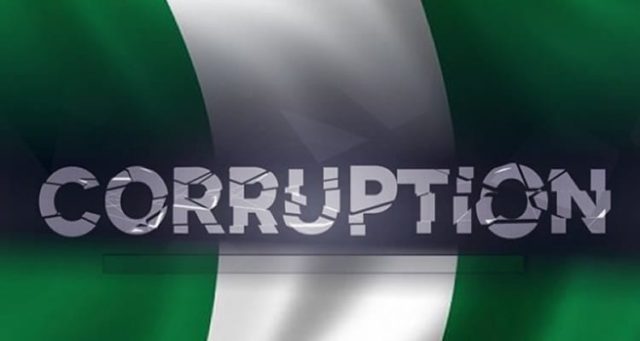
The term ”Corruption” has been a phrase linked with the Nigerian economic and political sphere over the years and a cursory look at the problem of corruption, will date back to the birth of Nigeria itself.
In as much as most Nigerians have come to accept the reality of the term corruption, and often times referred to it as the ”Naija way,” its negative impact has dealt a blow both in the private and public sectors.
The stench of public sector’s corruption gets thicker everyday as ICPC reveals that N2.67bn for school feeding during lockdown ended up in private accounts as revealed by news sources (THE ROOTS), on Monday 28-09-20.
The Independent Corrupt Practices and Other Related Offences Commission (ICPC) has announced that the sum of N2.67 billion paid to some federal colleges for school feeding during the COVID-19 lockdown ended up in private bank accounts.
The Commission’s chairman, Bolaji Owasanoye made the disclosure in his keynote address at the second national summit on diminishing corruption titled ‘Together against Corruption and Launch of the National Ethics and Integrity Policy.’
The event was held at the council chambers of the presidential villa, Abuja on Monday.
Owasanoye said under open treasury portal review carried out from January to August 15, out of 268 ministries, departments and agencies (MDAs) 72 of them had cumulative infractions of N90 million.
According to him, while 33 MDAs gave explanations that N4.1 billion was transferred to sub-TSA, N4.2 billion paid to individuals had no satisfactory explanations.
“We observed that transfers to sub-TSA were to prevent disbursement from being monitored,” Owasanoye said.
“Nevertheless, we discovered payments to some federal colleges for school feeding in the sum of N2.67 billion during lockdown when the children are not in school, and some of the money ended up in personal accounts. We have commenced investigations into these findings.”
The ICPC chairman said under its 2020 constituency and executive projects tracking initiative, 722 projects with a threshold of N100 million were tracked across 16 states.
He said a number of projects described as ”ongoing” in the budget were found to be new projects that ought to have been excluded so as to enable the government to complete existing projects.
According to Owasanoye, the agency also discovered over N2.5 billion appropriated by a deceased senior civil servant in the ministry of agriculture for himself while in office.
On asset recovery, he said the commission recovered N16 billion from the ministry of agriculture paid into individual accounts for non-official purposes.
He listed other assets recovered in the ministry to include 18 buildings, 12 business premises and 25 plots of land.
Corruption has been a long standing problem in Nigeria with many including president Muhammadu Buhari insisting that much of the country’s woes including insecurity, poverty and poor infrastructure can be traced to corruption.
Buhari himself came to power on an anti-corruption ticket in 2015. It does however appear that rather than initiating measures to reduce corruption especially in the public sector, the malaise has continued to fester, even as the aforementioned crises like poverty, unemployment and insecurity take deeper roots under the present administration.
This episode, in the opinion of so many Nigerians, is the beginning of more revelations with regards to corruption, especially as a lot of funds was confiscated and diverted under the pretext and canopy of covid-19 virus pandemic.
Nigerians are hopeful that the ICPC will not relent in their pursuit and fight against promoters and perpetrators of corruption, especially those in position of leadership who misappropriate public funds for person gains.
Gift Joseph Okpakorese
Staff Writer







